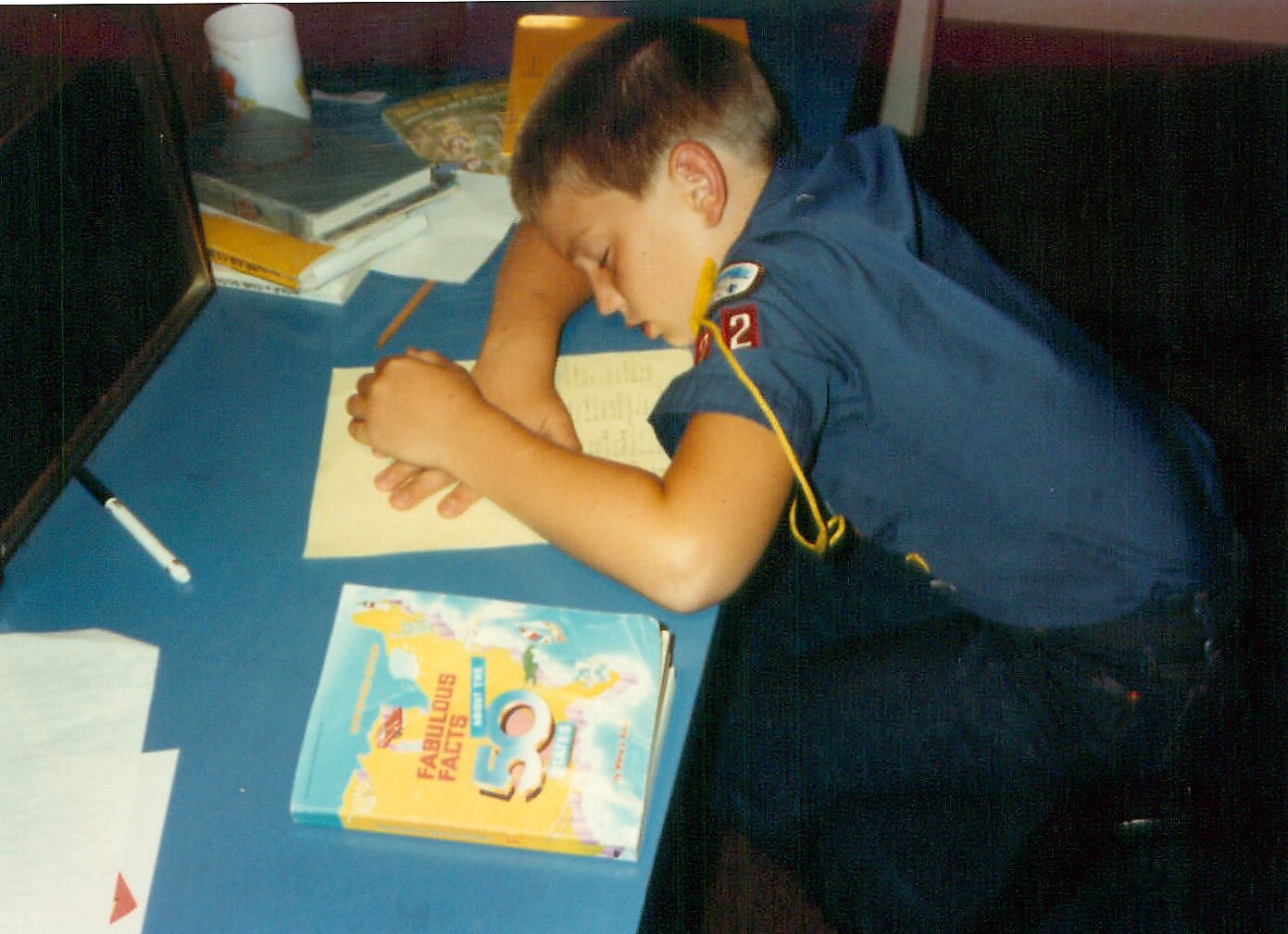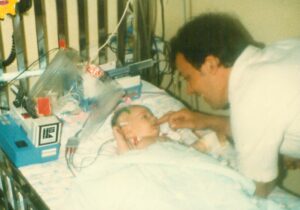We started homeschooling because we had a child that was not functioning in the public school system and needed immediate intervention. The other children were doing fine. Pulling them out of school was merely collateral damage resulting from the fact that it was too complicated to homeschool one child, have a toddler at home, a nursing baby, one child at our nearby elementary school and two bussed off to a school that offered special programs for gifted students. It was time to simplify life, circle the wagons and get things pulled together.
My oldest daught er was in 5th grade when we started homeschooling. (Note: at this point in time I was nowhere near being ready to give up the grade level concept, so we labeled her as our “5th grader.”) My daughter had been the perfect student when she went to school. She tested off the charts in virtually all subject areas and was every teacher’s delight. At the awards ceremony in 4th grade she had taken the “top student” award in three subjects.
er was in 5th grade when we started homeschooling. (Note: at this point in time I was nowhere near being ready to give up the grade level concept, so we labeled her as our “5th grader.”) My daughter had been the perfect student when she went to school. She tested off the charts in virtually all subject areas and was every teacher’s delight. At the awards ceremony in 4th grade she had taken the “top student” award in three subjects.
In kindergarten, they pulled her out of class for an hour a day so she could attend a reading class with older kids. She had tested at a 6th grade reading level and they did not want her to become “bored.” Ironically, she did not need any help with her reading, but she was always resentful that they made her attend the older class so she never got her turn to be the kindergarten calendar helper! (Another note: there are certain things that really matter to a young child. Reading was not a big deal, but calendar helper was!)
Given that background, you can see why I was looking forward to having my oldest daughter at home. The other children might be more work to homeschool, but my oldest daughter was going to be a joy! Sure enough, my daughter was just as conscientious at home about doing school work as she had been in public school. Every morning she got up and went to work, whether I was there to encourage her along or not. She was a perfectionist and met every expectation with flying colors.
We were only two or three weeks into school when something happened that totally changed my outlook on “school.” My daughter was pestering me for a list of 25 spelling words. It was already Wednesday and she was concerned that she still did not have her word list! As everyone knows, on Monday you write each word 5 times. On Tuesday, you use each word in a sentence. On Wednesday, you take a practice test, etc. So, I had truly upset her routine by putting it off so long.
Finally, her persistence really got to me. I set the list down in front of her and asked, “Is there any word on this page you do not know how to spell already?” She replied there was not. Then I asked, “Is there any word in this whole book that you do not know how to spell?” She hesitated, then answered truthfully, “No”. (She has always been a much better speller than I am.) I asked her, “Then why do you have to write all the words five times, use them in a sentence, take a practice test, and then take a duplicate final test on Friday?” Her answer caught me off guard. She said with equal truthfulness, “Because that is what you do to get an A”! I was shocked. Maybe I needed to do all that work to learn to spell, but my daughter did not. She already knew how to spell almost anything. A sudden burst of realization happened for me at that moment. For the first time, I understood the kinds of ceilings we too often put on our children’s education.
A tragedy occurs when a child is trained to believe that the ultimate measure of their success is whether they have completed an assignment better than the rest of their classmates. The real measure of their success is, and always must be, whether they have worked up to their potential and whether they are completing the necessary preparation for their unique mission in life, whatever it is. That day ended our time working through grade level books or following a structured daily schedule of schoolwork, especially her daily spelling assignments. We re-adjusted her school experience to allow her to move forward as fast as she wanted without regard to what a child would “normally” be doing in each subject in her “grade.” Her education became much more self-directed. She thrived, graduated from high school early, got a full tuition scholarship and exceeded our expectations.
RELATED ARTICLES

Is there something you would like help or more information on? Submit your questions here.
Do you have a parent help article that you want Simply Smart to consider publishing? Share by clicking here.
- Date Added: February 1, 2024



